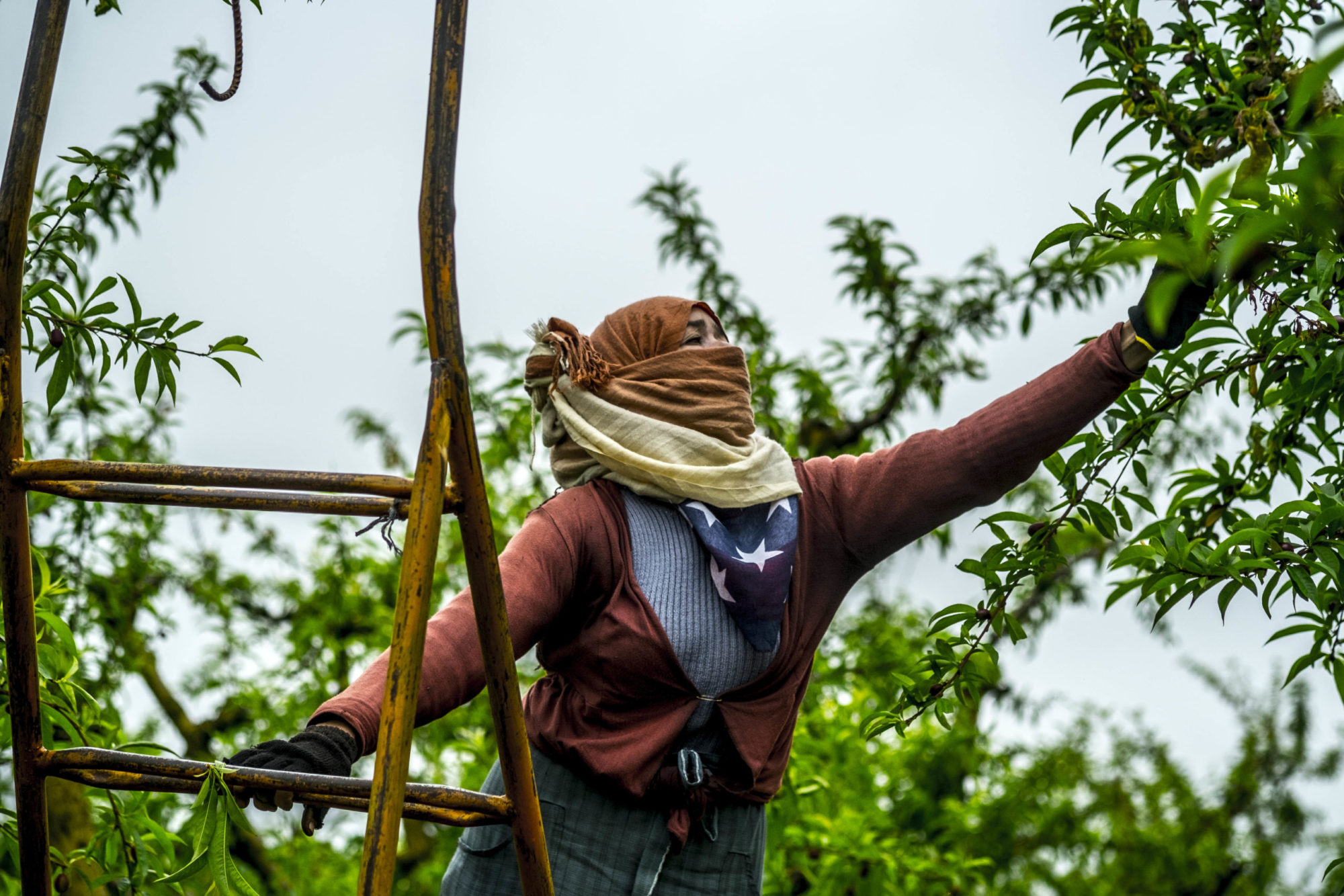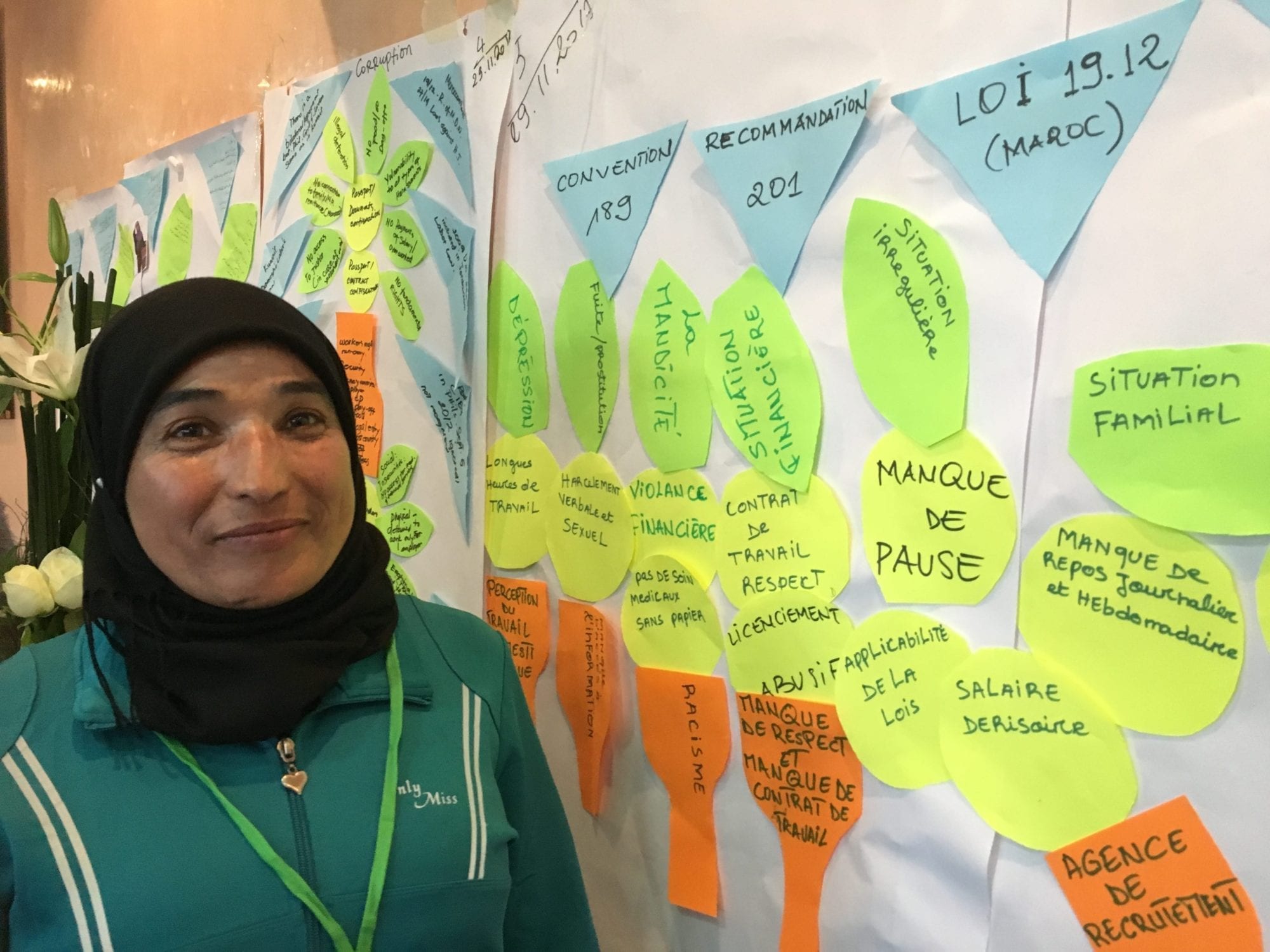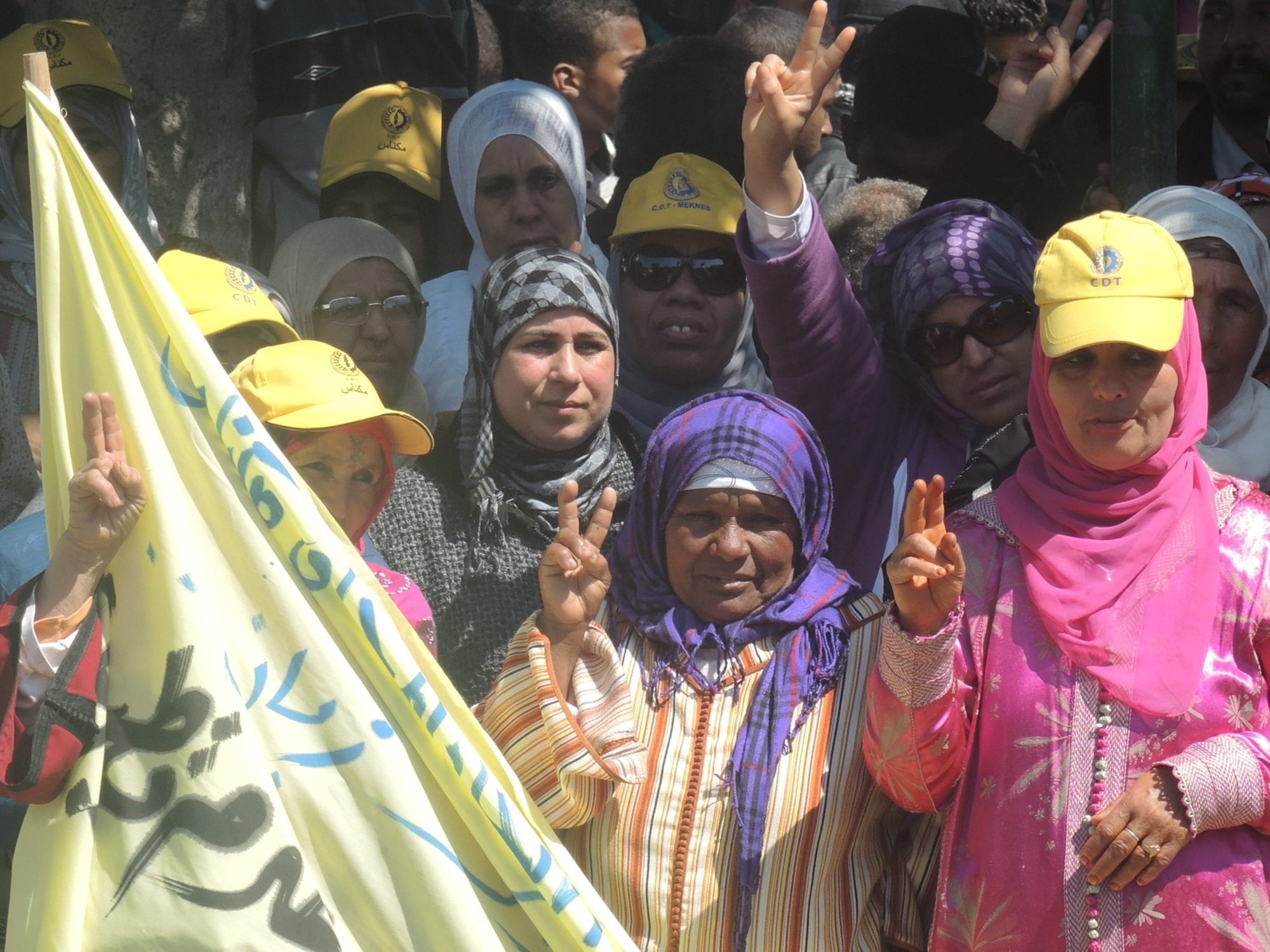Sorting olives, picking peaches and cultivating fields across a vast agro-industrial complex outside Meknes, Morocco, Hayat Khomssi says women workers like her once did not have access to higher-skilled jobs and leadership positions. But after she and her co-workers...

In Morocco, the Solidarity Center builds the capacity of workers and local unions through leadership development and advocacy for the rights of women, including agricultural workers. Credit: Solidarity Center/Zineb Arraki
The Solidarity Center works closely with our partners, the Democratic Labor Confederation (CDT) and the Moroccan Labor Union (UMT), to improve the wages and working conditions for precarious workers in the country’s agriculture and services sectors. Together with our union and community allies, the Solidarity Center also holds popular education and awareness trainings to help empower working women, and to support trade unions in representing marginalized workers in the private and public sectors, including workers with disabilities.
By building the capacity of workers and local unions through leadership development and advocacy for the rights of women and young workers in the workplace, these programs successfully translate into real economic and social gains—such as the first-ever collective agreement for farm workers in the Meknes region that includes stability in employment through job creation and job sustainability. The pact also assists temporary workers in becoming permanent workers, expands bonuses to temporary workers and ensures training, especially for women, so they can access higher paid jobs previously reserved for men.
Morocco has not ratified International Labor Organization Convention 87 on the Freedom of Association and Right to Collective Bargaining, and the International Trade Union Confederation’s annual survey of trade union rights notes Morocco heavily curtails worker freedoms. Union organizing and the right to strike is particularly challenging, with the persistence of a legislation that “criminalizes union work” through Article 288 of the country’s penal code.
Ending Gender-Based Violence at Work in Morocco Farms
Agricultural work remains one of the most dangerous in the world. And women, who comprise between 50 percent and 70 percent of the informal workforce in commercial agriculture, are especially vulnerable to sexual harassment, physical abuse and other forms of...
Rosalie: A Champion for Migrant Domestic Worker Rights
Workers who migrate to other countries for jobs often do not know their rights when they arrive, and many, like domestic workers, toil in isolation, where they are easily exploited by employers. Rosalie Ewengue, a domestic worker in Morocco from the Democratic...




